Diarrhea makes everyone uncomfortable, whether it’s human or dog. At least we can express our feelings, but dogs cannot. That is why you must initially know how to treat your dog’s diarrhea at home:
How to treat your dog’s diarrhea at home
Fasting for 12-24 hours
If you notice that your dog suffers from diarrhea, don’t give it food for at least 12 to 24 hours. Please don’t feel guilty; it’s a crucial step for your dog’s health. Once your dog’s diarrhea has stopped, offer it some water. If you don’t see any improvement signs within 6 hours of water only, you must take your dog to the doctor. In contrast, if you notice any improvement, give it some broth.
If you have a puppy at home, it is better to take it to the vet directly without fasting.
Feeding a bland diet
After fasting, a bland diet helps the dog to recover from diarrhea. The combination of fasting and a bland diet works well for the upset digestive system of dogs. Are you wondering what to give a dog for diarrhea? A bland diet that includes boiled chicken or boiled hamburger plus rice is a good option. It provides protein and a carbohydrate. A bland diet’s main idea is to provide your dogs with a low-fat, easy-to-digest meal.
1. Adding pumpkin to their food: Pumpkin contains high soluble fiber content, which is good for the dog’s digestive health. When you give the dog some pumpkin seeds, it will add bulk to their stools and also reduce issues with diarrhea. Moreover, the fermentation of this fiber yields beneficial fatty acids, which in turn provide energy to cells.
2. Plain white rice: You can add pumpkin seeds to plain white rice if you don’t want to give them directly to your dog.
3. Canned plain pumpkin: You can mix canned (unsweetened) cooked or pureed pumpkin into your dog’s regular wet or dry food.
4. Cottage cheese: Feeding the dogs cottage cheese and white rice is a good option when they have digestive issues. This meal is full of protein and easy for dogs to digest.
5. Plain chicken breast: Boiled, boneless chicken breast is one of the best options for protein choice for dogs with stomach distress.
Give Probiotics
Probiotics are good microbes that help to maintain overall well-being and prevent various health issues like diarrhea, UTI, etc. There are billions of bacteria living in the gastrointestinal system of animals. These good microbes balance the internal environment to control disease and boost health. It increases the immune system and decreases inflammation. Inflammation is one of the significant issues of dog diarrhea.
Give them medication
If these methods don’t work, take them to the vet and give them the prescribed medication. The vet usually suggests Loperamide medication. It is a good treatment for dog diarrhea. The recommended dose of this medication is 1mg per 20 pounds of body weight.
Factors stop dogs’ diarrhea completely?
Various factors can help to stop the diarrhea:
Diet – Adjust Their Food, Easily Digestible Diet: Changing your dog’s diet to easily digestible foods like boiled chicken and rice can help settle their stomach. This bland diet is gentle on the digestive system and can sometimes help stop diarrhea. Gradually reintroduce their regular food once their stools become firmer.
Hydration – Ensure They Have Access to Clean Water: Diarrhea can lead to dehydration, so always offering your dog clean and fresh water is crucial. Encourage them to drink to prevent dehydration, which can worsen their condition.
Medication – Consult a Vet for Appropriate Medications: Only use medications prescribed or recommended by your veterinarian. Over-the-counter medications can make the situation worse or mask underlying issues. Your vet may prescribe anti-diarrheal medications or antibiotics if an infection is present.
Stress – Minimize Stressors in Their Environment: Stress can exacerbate digestive issues in dogs. Try to minimize stressors in your dog’s environment, provide a comfortable and quiet space, and maintain a regular routine to reduce anxiety.
Parasites – Check for and Treat Any Underlying Issues: Intestinal parasites like worms can cause diarrhea. Your vet can perform fecal tests to check for parasites and provide appropriate deworming treatment if necessary.
Monitoring – Keep a Close Eye on Their Condition:
- Continuously monitor your dog’s condition while managing their diarrhea.
- Watch for changes in behavior, appetite, and the consistency of their stool.
- Keep track of any improvements or worsening symptoms.
Vet Visit – If It Persists, Seek Professional Help: If your dog’s diarrhea persists for more than a day or worsens despite home care, or if they exhibit concerning symptoms like blood in the stool, dehydration, or severe lethargy, it’s time to consult a veterinarian. They can perform diagnostic tests to find the underlying cause and provide tailored treatment.
What causes diarrhea in Dogs?
There can be various causes of diarrhea in Dogs. Here is the list:
1. Eating garbage or spoiled food
Sometimes, dogs eat rotten food from the garbage. This food is full of harmful bacteria. When they eat it, harmful bacteria enter their gut and cause digestive issues like dog diarrhea with blood, vomiting, fever, etc.
2. Stress or anxiety
The second reason that can cause diarrhea in dogs is stress and anxiety. When a dog goes through stressful situations like adoption, separation anxiety from their owner, changes in the environment, or boarding, it can upset their gastrointestinal (GI).
3. Change in diet
Your dog’s diet might have changed, which it cannot digest easily. Just like the human body, a dog’s body also takes time to adjust to new things. You must slowly move your dog to a new diet without rushing.
4. Ingestion of foreign objects such as toys, bones, and fabric
Dogs love playing with various things, such as toys, bones, and mats. They usually chew them, and there are possibilities that they might have ingested any of these objects.
5. Parasites – roundworms, hookworms, whipworms, Coccidia, or Giardia
Parasites can also infect the dog’s GI. Later, it results in numerous digestive problems, such as diarrhea. If you doubt parasite infection in your dog, you must run to the doctor. Untreated parasite infection can lead to serious concern.
6. Viral infections like parvovirus, distemper, or coronavirus
A dog who suffers from a viral infection like distemper, parvovirus, or coronavirus can experience diarrhea.
7. Bacterial infections – such as salmonella
Bacterial infection is uncommon in dogs. Bacteria like salmonella usually infect dogs who have weak immunity. Dogs infected with this bacteria generally suffer from diarrhea containing blood or mucus.
8. Inflammatory bowel disease (IBD)
Inflammatory bowel disease can affect the stomach or the intestines. If it affects the stomach, the dog will have chronic vomiting. In the case of intestines, dogs will suffer from chronic diarrhea.
9. Pancreatitis
If you’re wondering whether pancreatitis can cause diarrhea in dogs or not, The answer is yes. The most common manifestations of pancreatitis are fever, nausea, vomiting, lethargy, diarrhea, abdominal pain, and decreased appetite.
10. Colitis
Inflammation in the large intestine is the prime reason for colitis. Colitis causes significant bowel diarrhea in all dogs. You can notice frequent, small volumes of semi-formed to liquid manure. The other cause of colitis is stress, parasite trauma, and allergic colitis.
11. Liver or kidney disease
Diarrhea is a common symptom when dogs have liver or kidney diseases. The reasons behind kidney conditions are dog age, trauma, amyloidosis, cancer, parasites, bacterial infections, or congenital disorders.
12. Intestinal cancer
If a dog has intestine tumors in the small or large intestines, it can experience diarrhea. But it is rare and not a common symptom.
What are some of the causes of bloody diarrhea in Dogs?
Parasites Infection
Parasite infection can be the reason behind bloody diarrhea in dogs. Parasites cause intestine inflammation, which results in bloody diarrhea. It is a severe condition, and dog owners must know the symptoms of intestinal parasites so that their furry companion gets treatment without any delay.
Stomach ulcers
Due to excessive acid and pepsin, or if the protective mechanism of the stomach and intestine gets broken, an ulcer forms. In case of delay in treatment, there is a chance of ulcer perforation, which can result in septic peritonitis and death.
The most common symptoms of gastric ulceration are dark, tarry stools, vomiting, and bloody diarrhea.
Viral or bacterial infection
Viral or bacterial infection can cause bloody diarrhea in dogs. Bacteria or viruses infect the gastrointestinal tract, cause inflammation, and even damage the intestine lining. It results in hemorrhagic diarrhea. Hemorrhagic diarrhea refers to the term in which blood passes with stools.
Parvovirus, Salmonella, or Bacterial Overgrowth or Infections cause bloody diarrhea in dogs.
Stomach or esophagus tumors
There is no direct link between stomach or esophagus tumors and blood diarrhea. But sometimes, the cancer grows large and creates obstruction, causing difficulty in swallowing. It may lead to vomiting or diarrhea due to undigested food. But if you see blood in diarrhea, there can be other reasons.
Poisoning from toxins such as plants
When a dog ingests certain plants, it can suffer from blood diarrhea. Many plants have certain toxic compounds which irritate the GI. The irritation and inflammation of the digestion system are so severe that it end up with bloody diarrhea.
What home remedy can I give my canine for diarrhea?
When your dog has more than 2 or 3 frequent episodes of diarrhea or has any symptoms of blood diarrhea, you must check with a vet and ask for advice on what to give a dog for diarrhea.
Here is a list of five natural remedies for dog diarrhea:
Lots of Liquid
When dogs experience diarrhea, ensure they drink a lot of water. Diarrhea makes dogs dehydrated because they give them water regularly. Add some chicken to it if they don’t seem interested in water.
Feed Good Bacteria
It is crucial to give good bacteria to dogs to support their gut health. You can give them plain yogurt; it has plenty of good bacteria. Besides this, you can add a probiotic supplement to your dog’s diet. You can check with the vet for a suitable probiotic brand for your dog.
Medicine
Consult your vet; they may prescribe antibiotics for your dog’s diarrhea. Also, ask whether the prescribed medication has any side effects. You can also ask for herbal medicine if you don’t want to give antibiotics to your dog.
There is one popular herbal remedy that might help your dog. Give one tea pill per 10 pounds of the dog’s body weight for 5-10 days at most, depending on the seriousness of symptoms. It is a cooling remedy and suitable to use for the short term.
Making Rice Water
Give rice water to your dog to keep them hydrated. Take one cup of rice, rinse it, and boil it in four cups for around 10 minutes or until the water color changes to creamy white. Keep the lid slightly open.
Strain the creamy rice water and allow it to cool. You can serve it to your dog.
Give Solids Slowly
You must introduce solids gradually when a dog is experiencing diarrhea and recovering slowly. Follow the following steps when transitioning a dog with diarrhea to solid food:
1) First, consult with a vet for dietary changes.
2. Reintroduce food with the start of a bland diet. A bland diet includes boiled white rice and boiled, skinless, boneless chicken or lean ground turkey.
3. Give your dog smaller yet frequent meals instead of large ones at once.
4. Avoid treats in the recovery period.
How long does diarrhea last in dogs?
Diarrhea can become a severe concern if ignored. When you notice your dog’s first episode of home diarrhea, try the above-mentioned home-based remedies. Most of the time, diarrhea symptoms get better on their own.
Monitor your dog’s condition closely. If diarrhea episodes last over two days, you must consult a vet. It can be because of some serious illness that must be diagnosed on time. On-time veterinary care can assist in identifying and addressing the prime cause and provide the proper treatment to ensure your dog’s well-being.
What to feed your dog?
The most important thing you can do is avoid giving kibble or rich food. It has to be for at least three days after the problem starts. We have already given you a couple of options suitable for such conditions. However, you have other alternatives, such as the following:
- whitefish and plain rice
- porridge oats cooked in water
- brown rice
- tapioca
- wholemeal pasta
- polenta
- plain potatoes
The good thing about all these foods is that they are bland. So they would not upset your dog’s stomach any further.
Reintroducing solids slowly
Once diarrhea stops, you must not give them the food they usually have. Instead, you should mix bland food with kibble for the next two to three days. It would help them get used to the kibble again.
If you put them back on their regular food, it would shock their system significantly. It could well lead to yet another episode of diarrhea. Mixing the food is a gentler and better method for their stomachs.
Using diarrhea supplements
There are some supplements that you could use if your dog is showing signs of diarrhea. They can help replace the electrolytes your dog loses during such an illness and ensure they are healthy.
You would get all of them from your vet. So, it is significant that you speak to them first before you get these meds.
The two most prominent options are Oralade and Probiotics or Prebiotics. You can use Oralade to replace the electrolytes that your dog loses during vomiting and diarrhea. You can use Prebiotics or Probiotics in their food to keep their gut healthy.
Using over-the-counter medicines
You can also use some over-the-counter medicines to deal with the symptoms of diarrhea in your dog. You can get them from your vet and online too. However, before you give any medication to your dog in such cases, please speak to your vet.
Diarrhea tablets work pretty much the same way that Imodium works in the case of humans – they stop diarrhea from happening by settling their stomachs. You can sprinkle diarrhea powder on the food and giving them when they have diarrhea.
Getting your dog too fast
If your dog is not vomiting, there is no need for them to go on a fast for 24 hours. However, if you withhold their food even as their digestive system settles down, there is nothing wrong with it either. However, you need to make sure that your dog is fully healthy if you plan on having your dog fast for 24 hours.
Seniors and pups must never fast at all. The same is also applicable to adult dogs who are in bad shape health-wise. Fasting must never be over 24 hours. Even if the vet advises fasting for pups and seniors, it must not exceed 12 hours.
What Is Salmonella in Dogs?
Salmonella is a bacterial that infects the GI tract and causes diarrhea in humans. If we talk about salmonella in dogs, then it’s rare. A dog doesn’t develop any system until it has a compromised immune system or a puppy.
If a dog has salmonella infection but doesn’t have any symptoms, it can still spread infection through feces or saliva, which can infect humans also.
Although salmonella infection is rare in dogs, its risk increases when pet owners add raw and unprocessed meats to their diets.
Common Symptoms of Salmonella in Dogs:
Here are the following symptoms of salmonellosis:
- Bloody diarrhea (hematochezia)
- Severe, sudden onset, watery diarrhea
- Vomiting
- Fever and Lethargy
- Dehydration
- Loss of hunger, with or without weight loss
Salmonella infection can spread to the lungs and can cause pneumonia. It can infect the reproductive tract in female dogs, leading to pregnancy loss.
Causes of Salmonella in Dogs
Salmonella typically spreads when a dog ingests feces from infected animals or bacterially contaminated foods. Dogs who live in agricultural environments or eat raw beef or chicken are at higher risk. Another typical source of canine infection is dried pig ears.
Salmonellosis can develop if a dog ingests raw meat by accident. Other minor gastrointestinal disturbances (such as enteritis) are also possible. Most of the time, mild problem does not require medical treatment, but dog owners still do not ignore the signs.
When do you need to see a vet?
You should consider seeing a veterinarian if your dog has diarrhea in the following situations:
Severe or Prolonged Diarrhea: If your dog’s diarrhea is severe, persists for more than a day or two, or worsens over time, it’s essential to seek veterinary attention. Prolonged diarrhea can lead to dehydration and other complications.
Blood in the Stool: If you witness blood in your dog’s diarrhea, even if it’s just a small amount, it’s a concerning sign that should prompt a visit to the vet. Blood in the stool can indicate various underlying issues, including gastrointestinal bleeding.
Vomiting: If your dog is vomiting and having diarrhea, it may indicate a more serious problem or condition. Combined vomiting and diarrhea can lead to rapid dehydration.
Lethargy or Weakness: If your dog becomes lethargic, weak, or seems unusually tired or unresponsive, this could indicate a more severe problem associated with diarrhea.
Dehydration: Dehydration is a significant concern with diarrhea. Its symptoms include sunken eyes, dry gums, excessive panting, and decreased skin elasticity. If you think your dog is dehydrated, seek immediate veterinary care.
Change in Behavior or Appetite: If your dog’s behavior changes significantly or they lose their appetite, it can be a sign of discomfort or illness associated with the diarrhea.
Frequent or Persistent Diarrhea: If your dog has frequent bouts of diarrhea, even if they seem mild, or if the diarrhea persists for more than a couple of days, it’s advisable to contact a vet. Frequent diarrhea can lead to nutritional imbalances and other health issues.
Recent Dietary Changes or Ingestion of Toxins: If your dog recently had a significant change in their diet or if you suspect they’ve ingested something toxic, such as certain plants, chemicals, or foreign objects, it’s essential to seek veterinary advice.
Underlying Health Conditions: If your dog has preexisting medical conditions, like kidney disease, diabetes, or inflammatory bowel disease, and experiences diarrhea, consult your vet for guidance tailored to their specific condition.
Conclusion
You can control your dog’s diarrhea if you know the root cause. Mild diarrhea cases quickly resolve with dietary adjustments and hydration. It would help if you tried natural home remedies for diarrhea in dogs. Severe cases require proper diagnosis and treatment. Always confer with a vet if your dog’s diarrhea persists for more than 48 hours. They can provide better guidance and help to improve your dog’s well-being.

 DogExpress
DogExpress

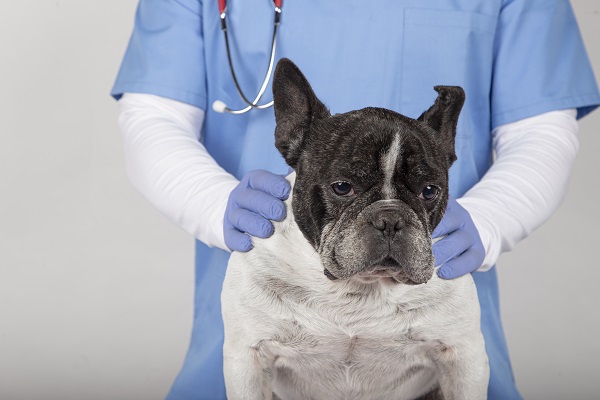
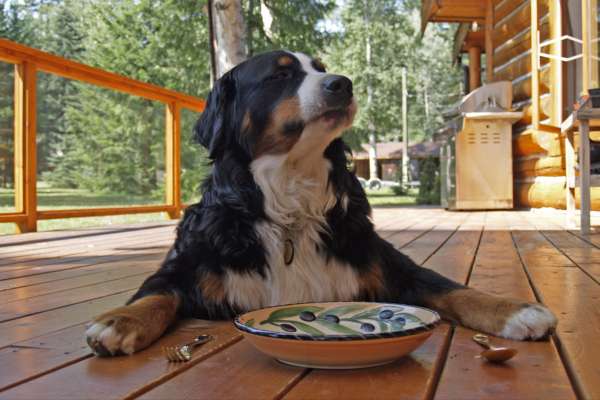
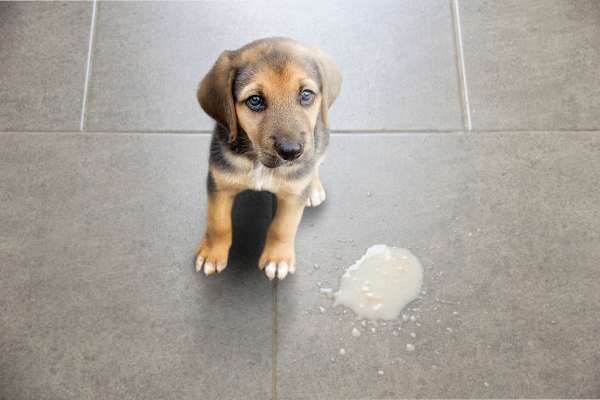
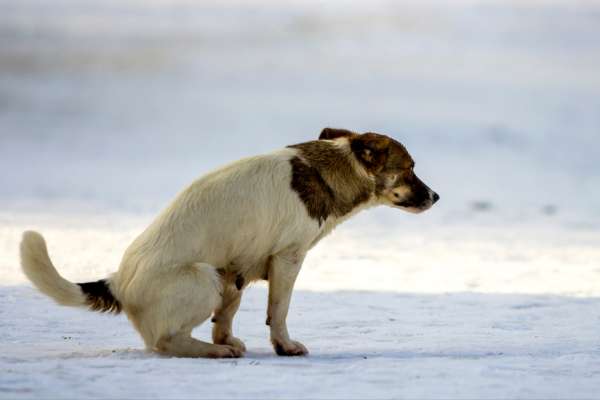
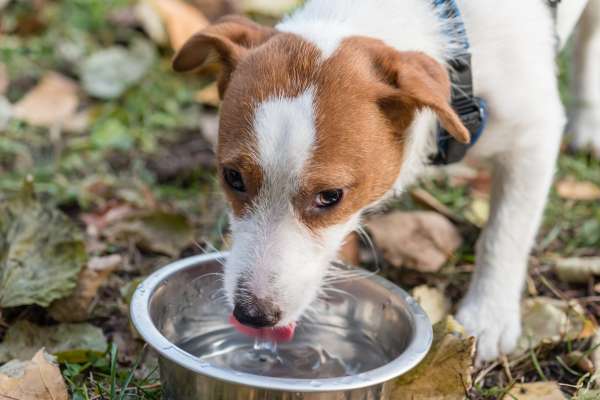

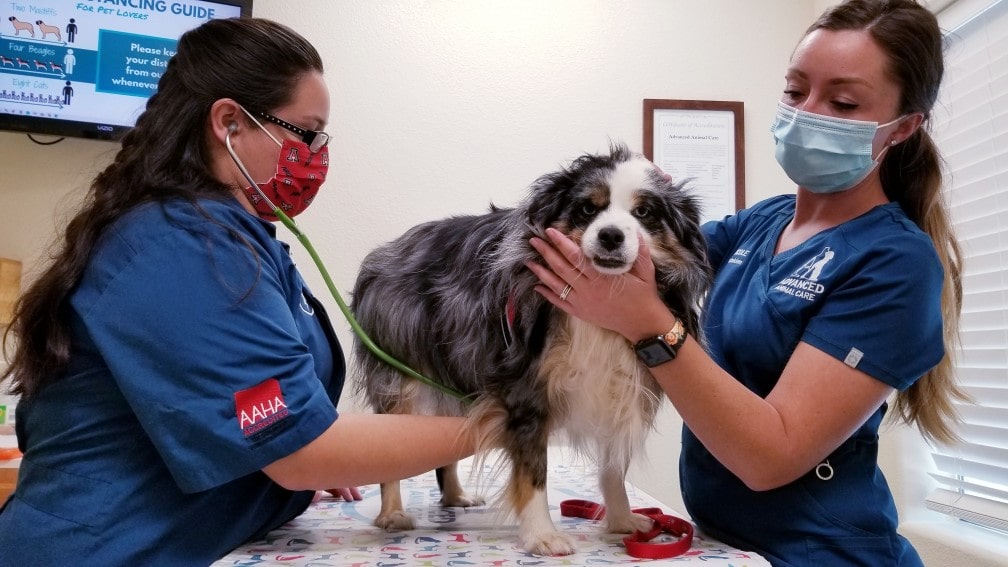
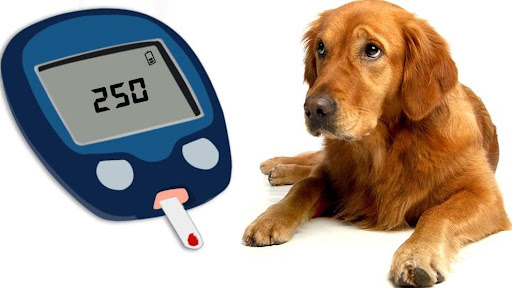

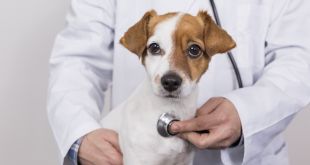












 in Chandigarh, India.
in Chandigarh, India. 
